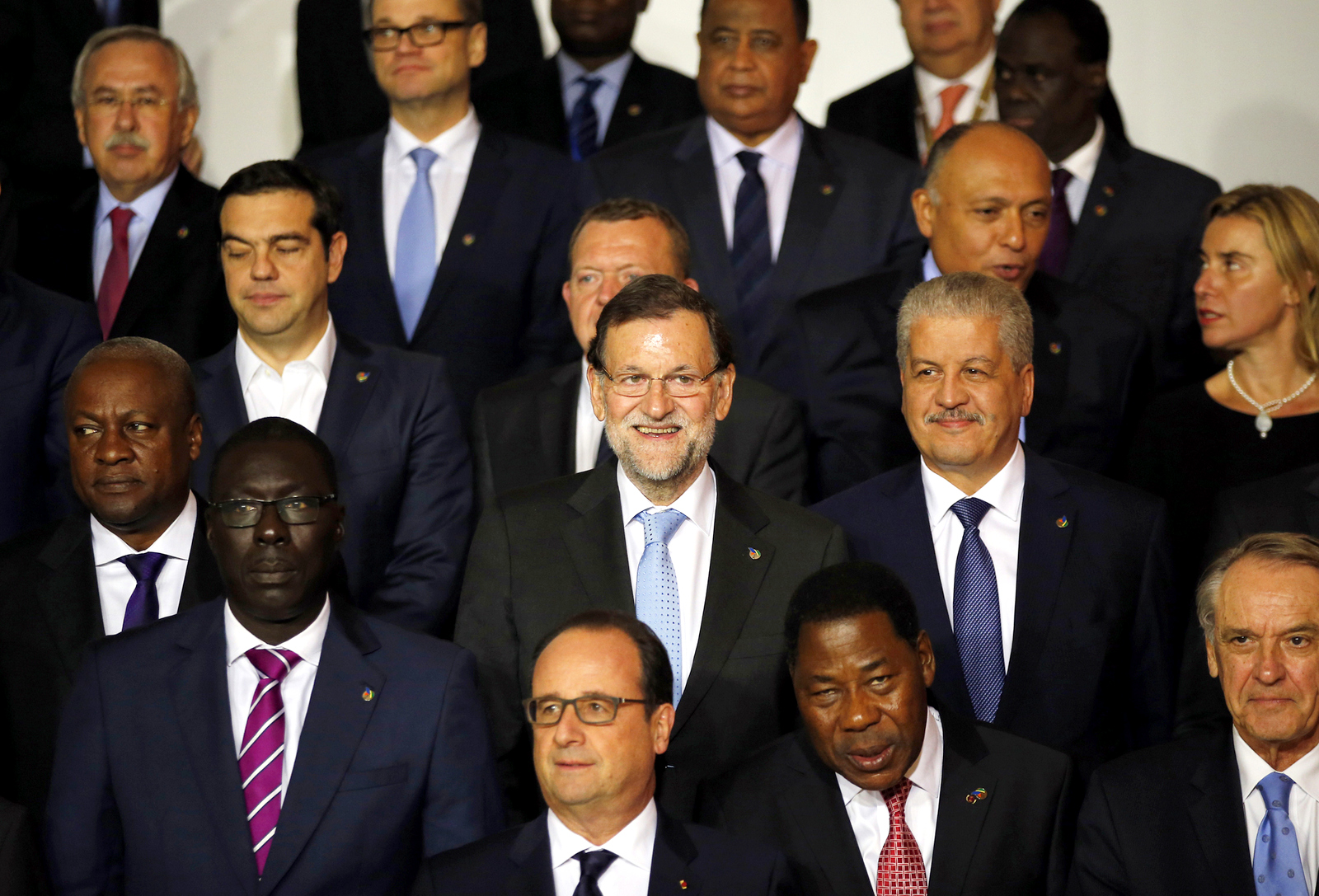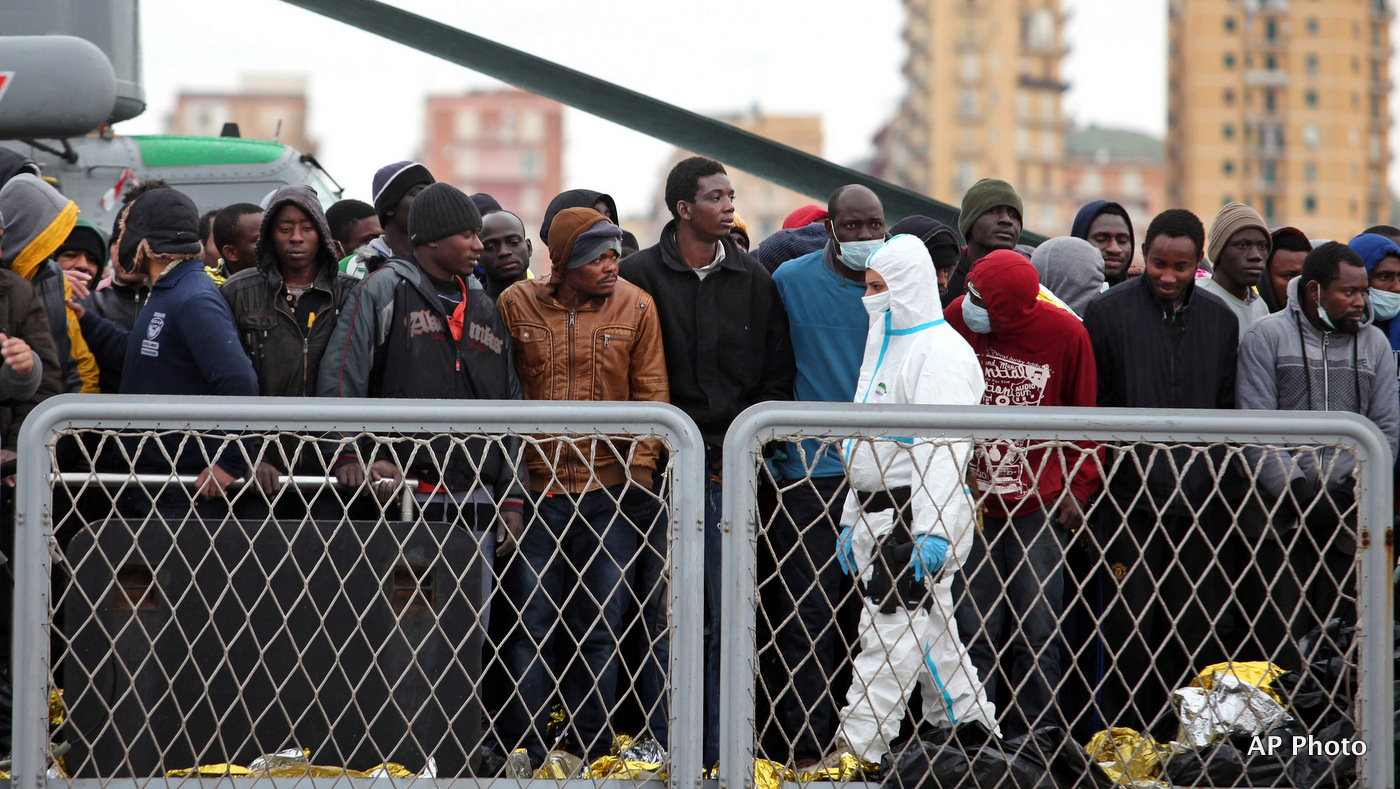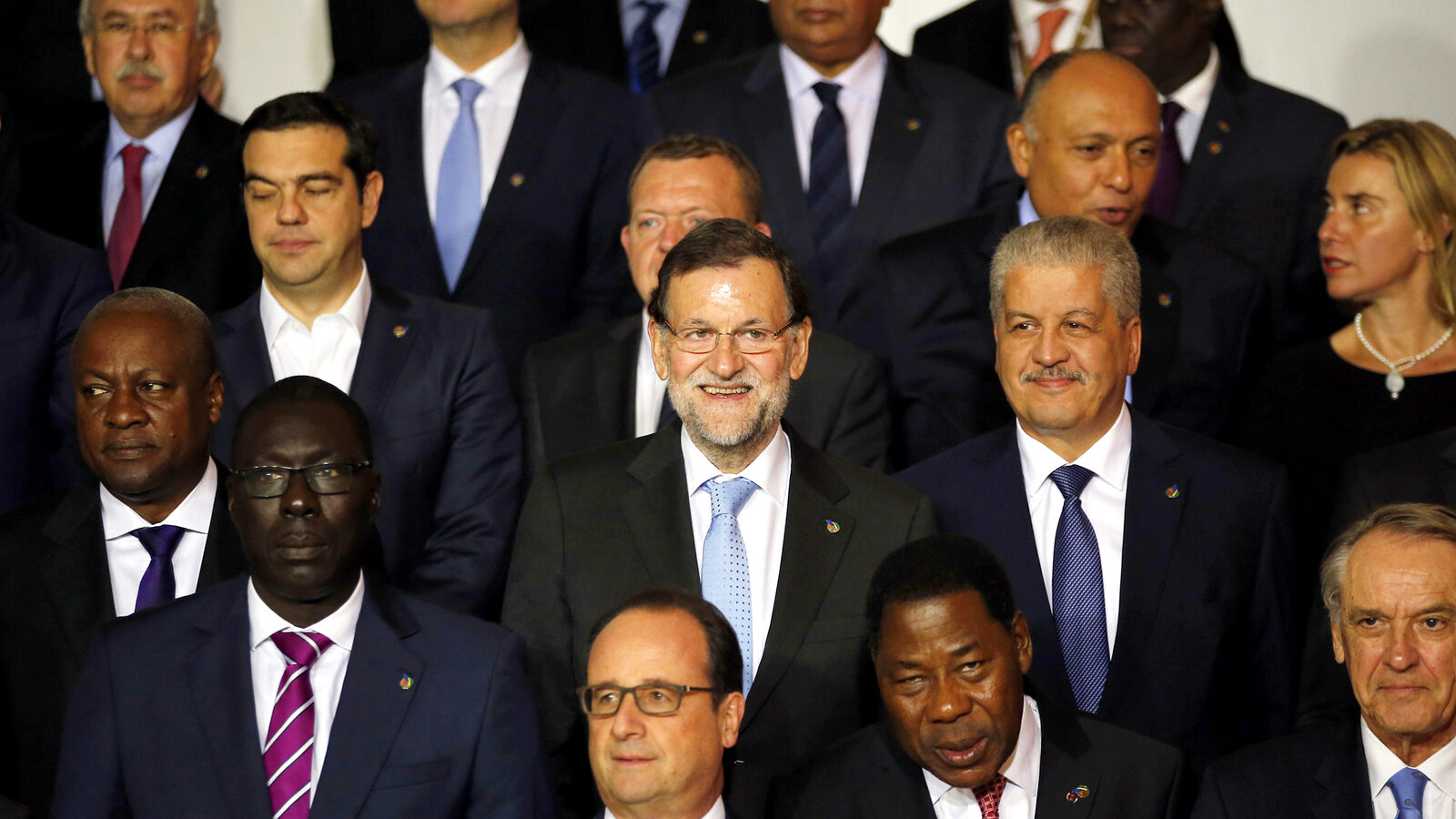
VALLETTA, Malta — The clamor for gas and oil by Western nations, in particular NATO’s destruction of Libya and Syria for access to those resources, has given rise to the largest refugee crisis since World War II, with more than one million refugees from war-torn nations expected to cross into Europe by the end of the year.
Over half a million refugees had fled to Europe by September, attempting to escape the horrors of Daesh (the Arabic acronym for the terrorist group alternately known as the Islamic State, ISIS, and ISIL) and al-Qaida in Afghanistan, Iraq, Syria and Libya. The United Nations estimates that as many as 8,000 migrants are arriving on European shores each day — a trend that is likely to continue as long as winter weather permits and borders remain open.
“I don’t see it abating, I don’t see it stopping. If anything it gives an indication perhaps that this is the tip of the iceberg,” Amin Awad, regional refugee coordinator for the UN high commissioner for refugees (UNHCR), warned in September.
“As long as there is no solution for Syria, as long as there is no stabilisation of the refugee conditions in the neighbouring countries … so efforts have to be made.”
After much debate, Germany lifted restrictions on refugees seeking asylum in the country, but it is unclear how long German Chancellor Angela Merkel can maintain this policy amid heightening political opposition. When Hungary decided to close its borders, Slovenia became an alternate entry point into the Schengen Area, or the European Union’s internal borders. Slovenia has since started constructing razor wire fences along its border with Croatia to prevent refugees from entering. To “channel” the influx of refugees, Austria announced Friday that it would be installing a fence on its border with Slovenia.
With international attention focused on the inhumane treatment these refugees are receiving if — and it is a major “if” — they arrive at Europe’s door, the Valletta Summit on Migration, held in Valletta, Malta, on Nov. 11 and 12, provided an opportunity for African and European leaders to discuss prospects of sharing responsibility in the ongoing migration crisis.
Summit participants included delegations from African countries, EU member states, as well representatives of international organizations, such as INTERPOL, the League of Arab States (LAS), FRONTEX, the African Union Commission and U.N.-affiliated organizations.
Two main divergences were evident: the EU’s tendency toward tightening border controls and heightening restrictions on who may enter (for example, dividing refugees into categories of highly-skilled and unskilled individuals), and Africa’s adoption of a stance that calls for more investment as opposed to exploitation of the continent.
European leaders voiced their support for the assisted voluntary return, or repatriation, of refugees. In comments during a discussion program on Malta’s national television station TVM, Malta’s foreign minister, George Vella, spoke about the importance of retaining highly-skilled migrants. This sentiment was echoed by European Parliament President Martin Schulz, who, during televised comments, also emphasized a preference for selectivity in order to grant asylum to highly skilled migrants, thus making repatriation a key component of EU policy.
While U.K. Prime Minister David Cameron refused to answer press questions prior to the opening ceremony of the summit, Nigerian President Issoufou Mahamadou insisted on the importance of collaboration between the country of departure, transit and arrival. The problem of migration necessitates global partners and a proper formulation of the economy, he said.
The Valletta Summit yielded an action plan and saw the signing of the European Union
Emergency Trust Fund for Africa. According to a document leaked hours prior to its announcement on Nov. 12, the action plan is designed “address the root causes of irregular migration and forced displacement; enhance cooperation on legal migration and mobility; reinforce the protection of migrants and asylum seekers; prevent and fight irregular migration, migrant smuggling and trafficking in human beings; work more closely to improve cooperation on return, readmission and reintegration.” The action plan builds upon the foundations of existing mechanisms, such as the Rabat Process, the Khartoum Process and the Joint EU-Africa Strategy.
Aid to Africa clashes with exploitation of Africa’s resources

The EU Emergency Trust Fund for Africa consists of €1.8 billion ($1.9 billion) from the EU budget and European Development Fund, as well as contributions from EU member states and other donors. Aimed at addressing “the root causes of destabilization, forced displacement and irregular migration, by promoting economic and equal opportunities, security and development,” these funds could benefit projects relating to sustainable development, employment opportunities, enhancing the accessibility of basic services, conflict prevention, migration and border control.
However, as African leaders pointed out in speeches and comments to the press, the contradiction between aid to Africa and the exploitation of Africa’s resources still needs to be addressed.
On the eve of the summit, The People for Change Foundation and other Maltese NGOs called on the country’s prime minister, Dr. Joseph Muscat, to prioritize human rights and human dignity during summit talks. The open letter, published in Malta Today, urges: “Dialogue with African countries should not become a tool to further limit the opportunities for people in need of protection to seek such protection.”
The letter further stresses that the development of humanitarian assistance should be based “on sustainable development of basic services including health and education systems, and on equitable and fair trade policies.” It also stipulates that European leaders should combat migrant trafficking by ensuring that “those who require protection are given legal and safe avenues for seeking it from States that can offer it.”
Macky Sall, president of Senegal, spoke about the EU’s role and responsibility with regard to immigration controls, which, he said, require coordination between the northern and southern areas of the Mediterranean. In other comments, Sall insisted that fraud is depriving the African continent of $50 billion a year and denounced the exploitation of Africa’s natural resources, stating: “We have sufficient resources in Africa, we could do without aid.”
In other speeches marking the end of the summit, Egyptian Foreign Affairs Representative Sameh Shukri stated that stringent control over migration increases exploitation. He called for addressing the root causes through investment, as well as altering the course of “irregular migration” to regular migration. Shukri added that Egypt would be issuing “a new law against illegal migration.” He further urged respect for human rights and international law and noted the importance of cooperation between the African Union and the Horn of Africa to combat human trafficking.
African Union chairperson Nkosazana Dlamimi Zuma addressed the consequences of exploitation and suggested that the EU should seek to invest in Africa and discuss industrialization with African leaders — modernizing Africa to avoid migration. Zuma also reminded the summit that the ramifications of violence and migration were first discussed in 2006 by the African Union in Tripoli, Libya, spurred by the need to address violence on the borders in eastern Chad and Darfur. The Tripoli Declaration was signed on Feb. 8, 2006 and approved by the E.U. on Feb. 13, 2006 — a precedent that went largely ignored throughout the summit.
EU aims: border control, selectivity and repatriation

Refugee testimonies, published on the United Nations refugee agency’s website, detail the extent of exploitation and suffering encountered throughout their journeys. Mohad, a Somali man who departed from Libya, described his experience crossing the Sahara desert on foot and being at the mercy of the smugglers: “We were given a GPS and told to travel to Malta ourselves. We saw the land four days later. A day more and I would die of thirst.”
A Syrian refugee, Ahmed, lost eight members of his family at sea on the journey to reach Malta from Libya in 2013. Apart from encountering violent militias in Libya, people seeking asylum were exploited by traffickers with severe consequences. “Those women who were unable to cover the ever increasing amount [of money demanded by traffickers] got raped by their keepers, while the men got tied up and tortured,” Ahmed told Boglarka Balogh, a Hungarian freelance journalist covering humanitarian issues.
A few months ago, the EU was contemplating a militarized approach to addressing human trafficking networks. Not content with participating in NATO’s destruction of Libya, European countries proposed another form of invading a country’s sovereignty by preventing boats from leaving known departure points, such as Libya.
Italy had opted for a pushback policy, despite such actions being in direct violation of international law. In 2013, Maltese Prime Minister Muscat had also threatened to repatriate a group of African migrants who had departed from Libya — a move that was countered by intense lobbying from local NGOs. Muscat ultimately yielded, stating that his intention was to create awareness of a lack of burden sharing within EU countries.
For his part, Muscat deemed the summit a success, reiterating that the free movement of people should be safeguarded within the Schengen Area, yet also calling for “the need to strengthen the EU’s external borders,” as the Times of Malta reported. Malta has pledged €250,000 ($266,079) toward the Emergency Trust Fund for Africa.
His thoughts were echoed by EU Council President Donald Tusk, who insisted that “asylum seekers should not be the ones to decide which country would grant them asylum,” according to a report from the Times of Malta.
Tusk also said that migration routes should remain open while efforts are made to prevent human trafficking and extend international protection “to those entitled to it,” according to a report from Malta’s TVM.
Meanwhile, Interpol Secretary General Jürgen Stock spoke about the importance of addressing organized crime and the international community’s role in countering exploitation with a strong response. Interpol, he added, should play a role in Africa and support governments in combating human trafficking and coordinating relevant activities.
Perhaps most explicit of all was Luxembourg’s Prime Minister Xavier Bettel, who, when questioned by journalists about his expectations prior to the commencement of the summit, bluntly stated: “I think it is better to invest in people than weapons.”
In other remarks at the closing of the summit, Bettel maintained a consistent approach and declared that the EU should remain open and find a balance between the “humanitarian imperative” and anticipating demographic changes and conflicts.
“Cutting development aid is easy as voters won’t suffer,” Bettel told reporters before reiterating his call to invest in people rather than weapons to prevent conflict and extremism.


